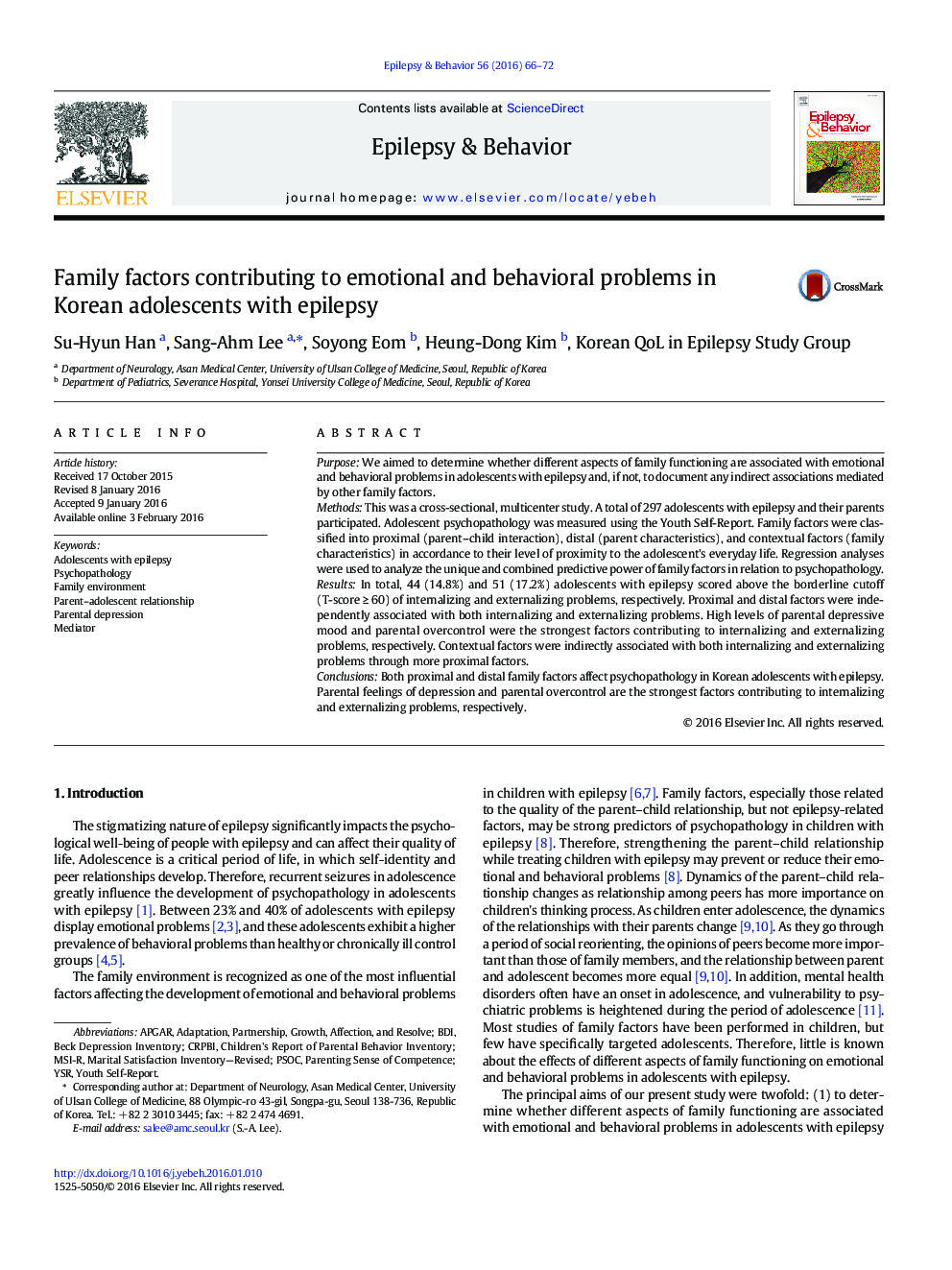| کد مقاله | کد نشریه | سال انتشار | مقاله انگلیسی | نسخه تمام متن |
|---|---|---|---|---|
| 6010631 | 1579834 | 2016 | 7 صفحه PDF | دانلود رایگان |
- Family factors contribute to psychopathology in adolescents with epilepsy.
- Both proximal and distal factors independently exert effects.
- Parental overcontrol and parental depression are strong contributors.
- Contextual factors exert their effects by affecting more proximal factors.
PurposeWe aimed to determine whether different aspects of family functioning are associated with emotional and behavioral problems in adolescents with epilepsy and, if not, to document any indirect associations mediated by other family factors.MethodsThis was a cross-sectional, multicenter study. A total of 297 adolescents with epilepsy and their parents participated. Adolescent psychopathology was measured using the Youth Self-Report. Family factors were classified into proximal (parent-child interaction), distal (parent characteristics), and contextual factors (family characteristics) in accordance to their level of proximity to the adolescent's everyday life. Regression analyses were used to analyze the unique and combined predictive power of family factors in relation to psychopathology.ResultsIn total, 44 (14.8%) and 51 (17.2%) adolescents with epilepsy scored above the borderline cutoff (T-score â¥Â 60) of internalizing and externalizing problems, respectively. Proximal and distal factors were independently associated with both internalizing and externalizing problems. High levels of parental depressive mood and parental overcontrol were the strongest factors contributing to internalizing and externalizing problems, respectively. Contextual factors were indirectly associated with both internalizing and externalizing problems through more proximal factors.ConclusionsBoth proximal and distal family factors affect psychopathology in Korean adolescents with epilepsy. Parental feelings of depression and parental overcontrol are the strongest factors contributing to internalizing and externalizing problems, respectively.
Journal: Epilepsy & Behavior - Volume 56, March 2016, Pages 66-72
